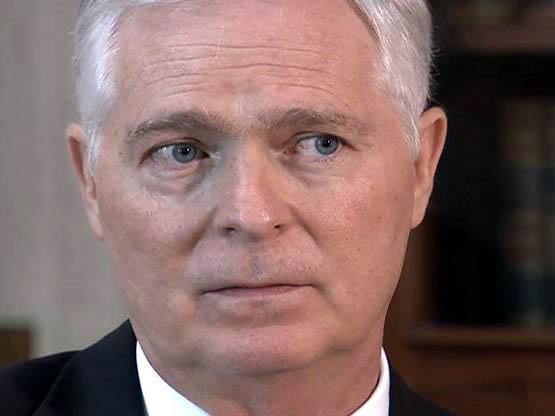Until a New York jury on Thursday convicted former President Donald Trump of 34 felony counts in a campaign hush-money payment trial, a U.S. president had never been convicted of a felony.
But history shows that Trump is no exception: prosecutors have a history of pursuing politicians, both from the ruling party and opposition parties, for campaign finance violations.
Several lawmakers across the country have been convicted of campaign finance violations, and North Carolina in particular has a history of bipartisan politicians being charged, and sometimes convicted, of campaign finance violations.
Some of these may also shed light on how Trump will be sentenced on July 11. But direct comparisons are difficult to make, since none of the following cases in North Carolina involve as many charges as the one a jury convicted Trump of on Thursday:
Senator John Edwards
The scandal surrounding John Edwards is perhaps most closely linked to the details of Trump's affair. Edwards served as a senator from North Carolina from 1998 to 2004 and was later the Democratic vice presidential nominee for John Kerry's presidential campaign.
Edwards ran for president in 2008 and briefly led the polls before a sex scandal brought him down. Like Trump, Edwards was married but had an affair that he tried to cover up to protect his political ambitions.
Edwards was accused of misappropriating donations to cover up his pregnant mistress.
He was indicted on six felony counts by the U.S. Justice Department under President Barack Obama, a fellow Democrat, in 2011 but acquitted after a jury acquitted him on one charge and returned a mistrial on the others.
Governor Mike Easley
Former Democratic Gov. Mike Easley, like Trump, was convicted of concealing reportable politically motivated expenditures: Trump's were payments to his mistress, while Easley's were helicopter rides given to him by a supporter.
- Easley faced other ethical issues, but the criminal case focused solely on that charge.
- He entered an Alford plea, which is similar to a guilty plea but allows a defendant to continue to maintain their innocence despite making the plea.
- Easley was convicted and lost his voting rights, but received no prison time and instead paid a small $1,000 fine.
- His son, Michael Easley Jr., is currently the Biden administration's federal prosecutor for eastern North Carolina.
- The former governor's case may mirror that of Mr. Trump, who is awaiting sentencing, but it shows that underlings often face harsher punishments than their bosses. Former Trump fixer Michael Cohen has already served more than two years in federal prison for his role in the same hush-money scandal. Ms. Easley's fixer, Ruffin Poole, served nearly a year in prison for some of the conduct uncovered during the investigation.
State Rep. David Lewis
State Rep. David Lewis, who until a few years ago was one of the state's most powerful Republicans, represented Harnett County in the state Legislature for nearly two decades.
- Lewis pleaded guilty in 2020 to making false statements to banks after it was discovered he had used fake organizations to steal political campaign funds for his own personal use.
- Lewis paid back the money and received a light sentence: probation rather than prison and a $1,000 fine.
- He now works as a lobbyist in the state legislature.
State Senator Fletcher Hartsell
State Sen. Fletcher Hartsell, a Republican from Concord, was sentenced to eight months in federal prison for various campaign finance irregularities. Like Rep. Lewis, Rep. Hartsell was a longtime and well-respected member of Congress before his downfall.
- In 2017, Hartsell was convicted of violating state and federal campaign finance laws for misusing more than $200,000 that supporters had donated to his campaign over the years.
- He paid for speeding fines, personal vacations, a birthday party for his granddaughter and tickets to the musical “Jersey Boys.”
Ongoing Trump Lawsuits
Trump could be convicted of dozens more felony charges depending on the outcome of three remaining trials over his handling of classified documents and his attempts to remain in power despite losing the 2020 election.
As the campaign finance trial has progressed in recent days, Trump's campaign has regularly sent emails accusing supporters of political targeting in an effort to raise funds for his 2024 presidential campaign against Biden — an argument he repeated outside the courtroom on Thursday, just minutes after the verdict was handed down.
“This was a rigged and disgraceful trial,” Trump said.


